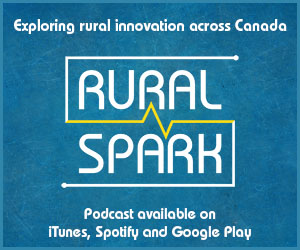GOLDBORO – Confidence is high with the company proposing construction of an open-pit mine and ore processing facility in Goldboro. That’s partly due to the project receiving environmental approval, subject to terms and conditions, from the province last week.
Signal Gold Inc. of Toronto – formerly known as Anaconda Gold – estimates that the proposed two-pit mine will yield more than 100,000 ounces of the mineral annually over a projected 11-year first phase.
“The project has really taken shape and evolved,” Deidre Puddister – Signal Gold’s environment and compliance manager – said in an Aug. 8 telephone interview with The Journal.
Company CFO Rob Dufour, who was also part of the conversation, added that Goldboro Gold continues to “attract a lot of eyeballs globally.”
He noted that there is “more than enough interest” from potential funding sources for the planned initiative.
Dufour said, when it comes to financing, there continue to be challenges, including rising inflation rates.
“This is the culmination of a lot of hard work,” Dufour said of achieving environmental approval.
Although it is “one of many [required] approvals,” he added, it is “very much an important one.”
Dufour offered that environmental approval is a “top concern” for community members and stakeholders.
Even though she describes it as “really just the beginning of regulatory approval,” Puddister called the EA approval from the province a “massive milestone.”
In an Aug. 3 press release, the company described this step in the regulatory approval process allows for the start of site-specific permitting processes including industrial approval and Crown land and mining lease applications.
Describing how Goldboro Gold will have a “significant socio-economic impact on the region and the province,” company president and CEO Kevin Bullock thanked provincial environment and climate change minister – Tim Halman – along with the many stakeholders, rightsholders and community members who provided their comments through the environmental assessment review process.
“We recognize that a mining project is a temporary use of land, and we are committed to sustainably developing a project that mitigates environmental impact at every phase, including construction, operations, reclamation and closure. Importantly, we remain committed to working with Mi'kmaq, community members, regulators, and other stakeholders, as we progress towards the next steps to developing Nova Scotia's next gold mine, the largest private sector development project in the province,” he added.
In his decision granting environmental approval, Halman said he was "satisfied that any adverse effects or significant environmental effects of the undertaking can be adequately mitigated" through the terms and conditions outlined by his department that the company must carry out.
One of those conditions requires the company conduct and assessment of “all suspected or known contaminated areas” that could be disturbed by the new mine, which would include an area of abandoned underground mines from the late 19th and early 20th centuries. It must submit a plan on how to remediate them to the provincial environment department.
Signal Gold must provide the provincial government with ways in which “to lessen and monitor its impacts on wetlands and groundwater.” They also are required to develop a wildlife management plan, along with an updated Mi’kmaq ecological study.
As for detractors of the proposed project, who made submissions to the provincial department as part of the engagement process, most focused on potential environmental impacts.
Asked if there was any ‘surprises,’ when it comes to the terms and conditions of the environmental approval, Dufour offered “there weren’t,” while noting the company has been consistently reviewing other authorizations and approvals for other projects throughout the process.
“We were well prepared,” he said, noting that they were “quite confident” in their application.
With this approval, Dufour added that the Goldboro Gold project is “well positioned” moving forward.
Nevertheless, work is still pending in areas such as federal fisheries and Crown leases.
Dufour noted that Signal Gold has spent five years – a process that continues – carrying out analysis and study.
When it comes to what Dufour called “next steps,” he noted the recent addition of Brian Jackson, who is highly respected in the mining industry, particularly working with “building large projects,” which – of course – involves “very detailed engineering.” Jackson will serve as project director.
The company continues to target late 2023 as the start date for construction, with the first gold production earmarked for mid-2025.
When it comes to employment, Signal Gold estimates that the project will create 345 direct full-time jobs during construction, followed by 215 direct full-time jobs during operations.








